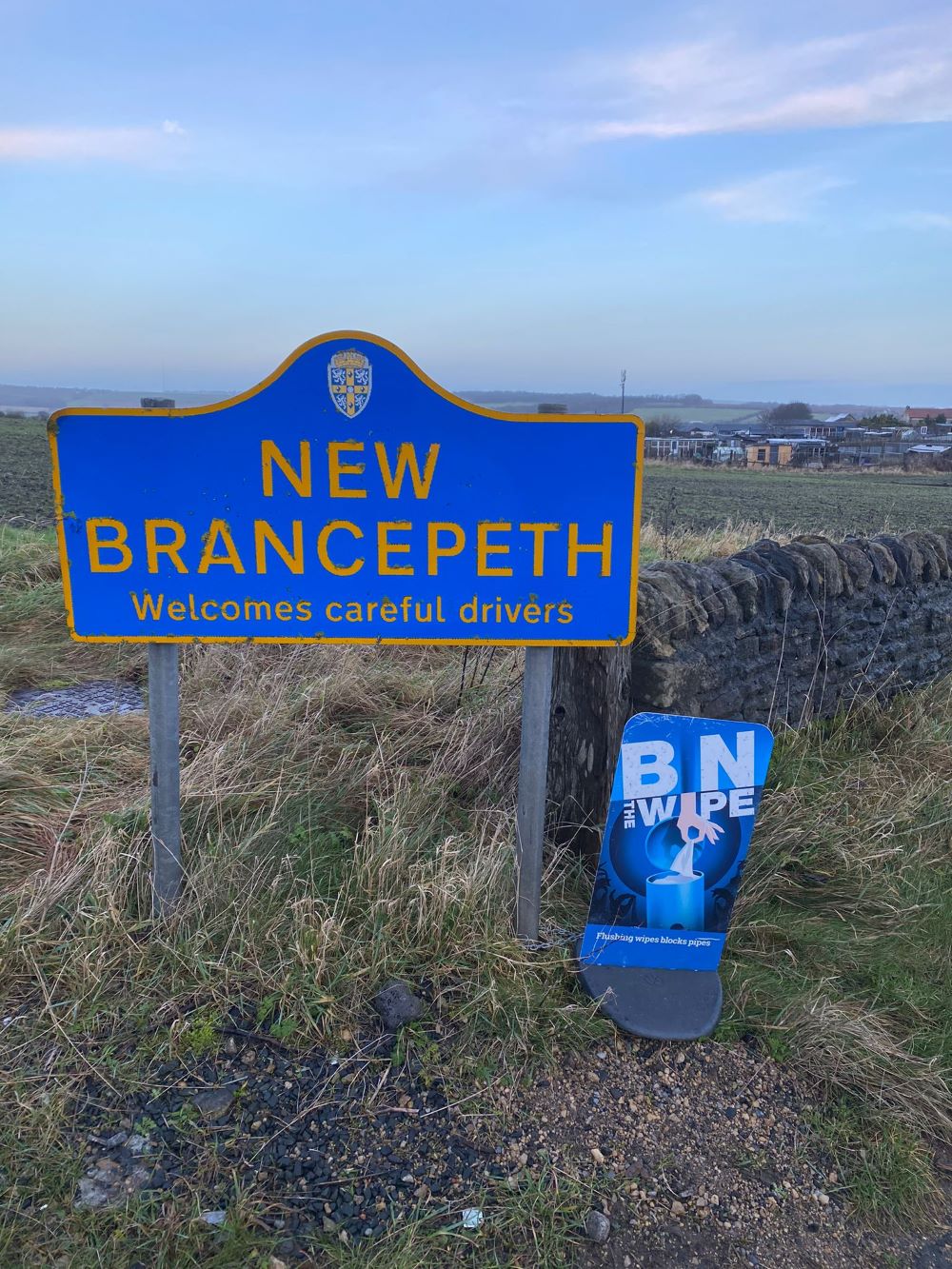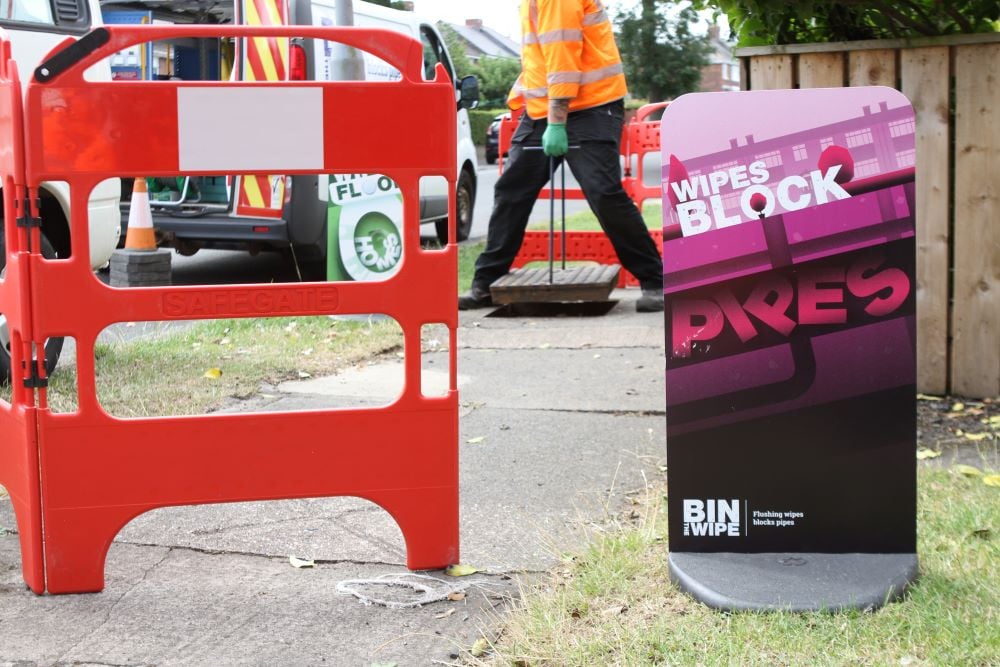Northumbrian Water’s Bin the Wipe team is in a ‘hot spot’ just outside of Durham after identifying high volumes of wipes being flushed down the toilet.

The team recently moved into the DH7 postcode area, which includes Ushaw Moor, New Brancepeth and Bear Park.
Wipes are found in the majority of sewer blockages cleared by the water company, because they settle or catch in the pipes instead of breaking down like toilet roll. Along with other unflushables, such as sanitary products, they stop the flow of the sewer, forcing other waste back up the pipes, into homes, or out into the environment.
Residents received letters last month, explaining the problem and outlining how the team will be monitoring the sewers and tracking wipe flushing back to the properties where it is happening.
Simon Cyhanko, Head of Wastewater Networks at Northumbrian Water, said: “We are taking Bin the Wipe to more places than ever before, and these parts of County Durham are areas where we really want people to get on board and understand the problems caused by flushing wipes.

“Sewer flooding is horrendous for those affected and by getting people to stop flushing wipes we can make a huge difference to the chances of it happening to them or their neighbours.
“Whatever the packaging might say, we want people to put their wipes in the bin, not down the toilet. It’s as simple as that, but the benefits are massive. We know many people already do bin their wipes, which is great. But we need more to do so.
"By writing to people and then having conversations when the team track flushing back to their properties, we really want people to make that change voluntarily. Most people do, simply because they hadn’t realised the problems caused. And we really want this to be about an educated choice.
“However, we will also be letting people know that if they continue to flush wipes, we can, and will recharge the cost of clearing blockages. In extreme circumstances, we can prosecute under the Water Industry Act 1991, as it is an offence to put anything in the sewer that can impede the proper flow of waste.
“It definitely doesn’t have to go that far, because it’s so simple to change. Just bin the wipe.”
